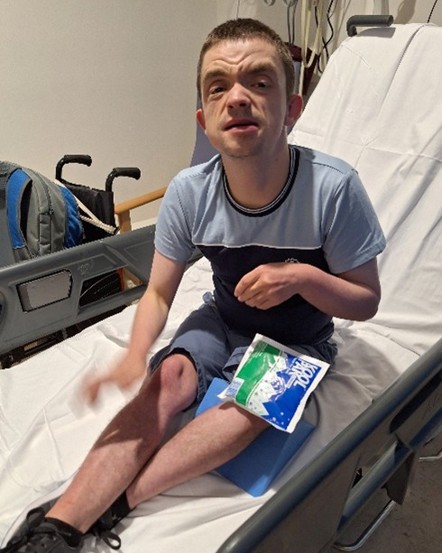Awareness SAS Syndrome (Glass Syndrome)

Jeana Crouse
I am passionate about helping awaken our strengths as special needs parents and caregivers along this journey. I cherish the opportunity to help other...

According to Michigan Medicine, University of Michigan(www.uofmhealth.org/) “Almost all individuals with SATB2-associated syndrome (SAS) are reported to have the disorder as a result of a spontaneous, non-inherited event (de novo).”
I would like to bring more awareness of SAS Syndrome because it took 31 years before I found out this is what my daughter has. There are so many things that can be medically maintained if one is aware of what to monitor. This has been valuable information for us. Information that could potentially be lifesaving for Emma.
SAS is a highly variable condition, and not all individuals with SAS will experience each associated feature. However, 100% will have developmental delays and intellectual disability with more than half experiencing severe developmental delay and/or intellectual disability. 95% will have speech delay or no speech. Most individuals with SAS are also reported to have mild, nonspecific facial features, such as the red part of the upper lip being thin, low-set ears, or a long face(www.uofmhealth.org/).
About 55% of individuals with SAS experience behavioral issues, with most having friendly personalities.
Some experience autistic tendencies, aggression, hyperactivity, difficulties with sleep, sensory issues, skin picking, or obsessive tendencies. Dental anomalies are present in 72%, which can range from abnormal shape or size of the upper central incisors and can also include dental crowding. 76% have palatal abnormalities(www.uofmhealth.org/). For example, my daughter has a split uvula. This was identified when she was a baby; however, not one doctor could explain it, nor did they feel it was a concern.
The importance of being aware of SAS Syndrome is that there are many things to monitor medically, or it can help explain possible things that could potentially happen. SAS individuals can develop seizures, gait abnormalities, skeletal anomalies, bone density, and cardiovascular defects. According to Michigan Medicine, there is still much to be studied and learned about SAS Syndrome.
I am grateful to be aware of my daughter having SAS Syndrome. I have lived in the dark for 31 years and have walked this road alone. It is my hope that if any of you feel this might be the case for your child, please seek genetic testing. There is help, education, and support out there that I had no idea about. Here are some resources:
Medline
GeneReviews
SATB2 Gene Foundation
https://www.facebook.com/SATB2
Unique: SATB2


